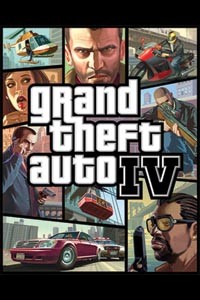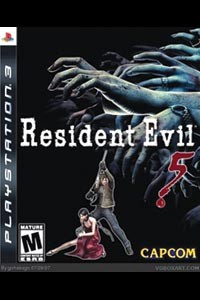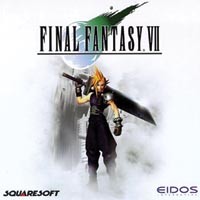The crime rate is about to skyrocket in Liberty City. Car-jackings, muggings, even thrill killings will sweep the streets, and in the process turn a generation of young people into glassy-eyed, violence-for-pleasure-seeking zombies. At least, that's what critics of Grand Theft Auto IV would have you believe.
(Click here to meet Michael Hollick, the CMU grad who is face behind the face of GTA IV hero Niko Bellic.)
Popular culture has always had a bogeyman. In the 1950s, it was comic books. In the 1980s, the graphic lyrics of gangsta rap and the satanic imagery of heavy metal were separately blamed for inciting violence. These days, video games are most often accused of leading the nation's youth astray. Whether it's pundits blaming Doom for the Columbine massacre, or Wal-Mart refusing to sell Manhunt 2 with its gruesome execution scenes intact, games have become the new front in the cross-cultural battle about the limits of expression.
The recent release of Grand Theft Auto IV will, inevitably, be another flash point. And the latest installment of the controversial franchise ups the ante: Its Liberty City is an almost exact recreation of New York, including four boroughs and part of New Jersey. Included are landmarks bearing resemblances to such famous places as the Brooklyn Bridge and the Statue of Liberty. Far from swaddling itself in the cloak of fantasy, Grand Theft Auto IV seems to dare critics to attack its nakedly authentic setting.
It's worked. Florida attorney Jack Thompson, one of the most strident anti-games voices around, described the newest GTA installment as "a murder simulator for violence against women, cops and innocent bystanders." He promised to bring legal action against the game's publisher, Rockstar Games, and its parent company, Take-Two Interactive, if any copies of the game were sold to minors.
And it's not just graphic violence. Game-industry critics object to any overt or implied elements of sex or racism that crop up in the course of play. Often, the gaming community's knee-jerk defense against these critics is to contend that they don't know what they're talking about. In many cases, this is true. But in their haste to polish their pet medium's reputation, gamers ignore the other side of the coin -- namely that in some instances, the bluenoses have a point.
The truth is that some games are irresponsible in regard to the fantasies they effectively promote. But instead of arguing for the validity of games on their merits, gamers may blindly lash out at their critics. Passionate advocacy means engaging our antagonists, not attacking them. It means not taking the bait. Unfortunately, that's easier said than done.
Fatal flaw
This isn't the first time Thompson has spoken out against the GTA series. He was also among the first to condemn the "Hot Coffee" modification for the PC version of Grand Theft Auto: San Andreas -- the user-created download that unlocked a mini-game in which the protagonist was shown having sex with his girlfriend. Surprisingly, this sparked a greater uproar than the series' violence ever had. (A recent survey by whattheyplay.com, a gaming-advocacy Web site, found that more parents worried about their children encountering a sex scene in a game than a severed head.)
As a result of his vigorous crusading, Thompson may just be the most hated man in games. He's traded barbs publicly with journalists, developers and, most famously, the former head of the Entertainment Software Association, Doug Lowenstein. In 2005, Thompson wrote an open letter to Lowenstein titled "A Modest Video Game Proposal." He offered to donate $10,000 to charity if a publisher would create and sell a game in which an angry father beats the employees of a video-game company to death with a baseball bat. Although the satire was muddled, at best, several amateur game-makers took him up on the offer.
The results, while justified in the minds of their miffed creators, illustrated a fatal flaw within the gaming community. Thompson's hysterics should have been greeted with the attention they deserved -- that is, none at all. He'd given himself enough rope. To actually make such a game -- or to modify existing games to include Thompson's visage -- merely proved his point about video-game violence for violence's sake.
This past winter, a Fox News program called The Live Desk with Martha MacCallum devoted a segment to the Xbox 360 game Mass Effect -- specifically, to a scene in the game in which the playable character has sex with a comely alien.
It's important to note that certain fairly specific conditions must be met for this allegedly lurid cinematic to appear. Every action the player takes over the course of the game, including what responses he chooses in conversations, can open up differing dramatic paths. It's possible to play the game and not encounter the sex scene at all. If you do chance upon it, it's because you've taken the time to establish a relationship between your character and the alien. Bared purple flesh notwithstanding, it's one of the more responsible depictions of carnal relations ever found in a game.
None of these precautions, however, seemed to sway the opinion of author and self-esteem evangelical Cooper Lawrence, who was a guest on The Live Desk. She characterized Mass Effect as a sex simulator -- a game in which "It's a man deciding how many women he wants to be with." When a befuddled Geoff Keighley -- the games journalist brought in to provide Fox's legendary fair-and-balanced coverage -- asked Lawrence if she'd actually ever played the game, she answered point-blank: "No."
Lawrence's misrepresentation led to an outcry in the gaming community. Besides savaging Lawrence in the insular world of forums and blogs, gamers set about plastering negative reviews on the amazon.com page for her self-help book, The Cult of Perfection: Making Peace with Your Inner Overachiever. Electronic Arts, which owns Mass Effect developer BioWare, fired off an angry open letter to Fox News management, demanding a retraction of the demonstrably false claims Lawrence had made.
Then a funny thing happened: Lawrence admitted she'd been wrong, telling The New York Times, "I recognize that I misspoke. ... I really regret saying that, and now that I've seen the game and seen the sex scenes, it's kind of a joke."
It was a rare victory for gamers. But the "Sexbox" controversy was defeated so quickly because it boiled down to simple fact-checking, and not because of the feeding frenzy it triggered. Often, such flare-ups aren't so black and white -- particularly when the debate is about matters of, well, black and white.
Playing the race card
The subject of racism in games is a touchy one, as it is anywhere. Black video-game protagonists are few and far between, and when they do show up, they're usually relegated to supporting roles, with a tendency to exhibit stereotypical traits. One recent egregious example is the character of Malcolm in Unreal Tournament III, whose manner of speaking is described in the Web comic Penny Arcade as "plung[ing] beyond parody and irony into some bizarre b-boy timewarp." Still, it's hard to get too worked up about such misguided, but essentially benign, portrayals.
It was a different story this past summer, when the trailer for Resident Evil 5 premiered at the Electronic Entertainment Expo in Los Angeles. The unveiling of a new Resident Evil game would have been an event no matter what, but people were especially eager to see how Capcom would follow up its commercial and critical smash Resident Evil 4 (my pick for game of the year in 2005). What we got for version five was footage that looked remarkably similar to version four: A solitary hero alone in a strange land battles with swarms of bloodthirsty natives. There was just one crucial difference: In Resident Evil 5, the "natives" are black.
The trailer shows Chris Redfield (the white protagonist from the original Resident Evil) walking through an impoverished village amid a mood of suspense and dread, even as the villagers go about their business. About midway through, one of the natives is shown undergoing a transformation in which his face pales and blood runs from his eyes. From there, it's a montage of action scenes in which Redfield, well-armed with a pistol, a shotgun and a submachine gun, takes on hordes of dark-skinned foes who wield primitive weapons such as axes and scythes.
Some viewers felt uneasy watching the footage, but the firestorm didn't ignite until a non-gamer objected to what she'd seen. Activist Kym Platt, posting on the blog Black Looks, had this to say:
The new Resident Evil video game depicts a white man in what appears to be Africa killing Black people. The Black people are supposed to be zombies, and the white man's job is to destroy them and save humanity. "I have a job to do and I'm gonna see it through."
This is problematic on so many levels, including the depiction of Black people as inhuman savages, the killing of Black people by a white man in military clothing, and the fact that this video game is marketed to children and young adults. Start them young. ... fearing, hating, and destroying Black people.
After gaming mega-sites such as Kotaku linked to the post, gamers laid into Platt on Black Looks' comments section, until the site admin closed it. Ironically, Platt's fear that Resident Evil 5 encouraged whites to see blacks as less-than-human was essentially mirrored in how she and the gaming community viewed each other. Commenters who came down hard on Platt for indulging a misguided sense of persecution were evincing exactly the same thing.
There were, in fact, at least two compelling arguments to counter Platt's intentionally provocative post. Her statement of "fact," that the game would be marketed to children, was false. Every prior Resident Evil game has been rated Mature (intended for people 17 and older), and there was no reason to expect anything different from the game's fifth installment. Furthermore, Platt didn't seem to have the benefit of knowing the series' ongoing story line. In the Resident Evil mythos, powerful corporations and religious cult leaders exploit the weak and powerless -- making the zombies themselves victims.
Gamers didn't do themselves any favors by refusing to see the validity of Platt's complaint. The less-helpful commenters accused Platt herself of racism, of creating a racial divide where previously there was none. They decried an assault on Capcom's right to free speech. But the question wasn't whether the game's Japanese developers had intended any racism (cultural ignorance is a commonly invoked defense among gamers), or why nobody had complained before when Resident Evil zombies had been predominantly white. It was whether those claiming free speech in defense of divisive games were willing to extend the same rights to those whom the games offended.
Newsweek's technical writer and editor, N'Gai Croal -- an African American -- recently explained the controversy this way to MTV's Multiplayer blog: "It's not as simple as saying, 'Oh, they shot Spanish zombies in Resident Evil 4, and now black zombies and that's why people are getting upset.' The imagery is not the same. It doesn't carry the same history; it doesn't carry the same weight."
In other words, by failing to acknowledge the troublesome overtones of the trailer, gamers were in effect shutting their eyes to historical follies by colonial powers in such places as Africa and the Caribbean. And whether or not gamers recognized the potential offensiveness of the trailer's imagery, it was offensive to some. In the end, the larger issue wasn't so much whether the trailer actually was racist -- it was that gamers didn't seem interested in finding out.
Artfully played
In 2005, Sen. Hillary Clinton (D-N.Y.), along with co-sponsors Sen. Joseph Lieberman (I-Conn.), Sen. Evan Bayh (D-Ind.), and Sen. Tim Johnson (D-S.D.), introduced a bill to the United States Senate that would have made the sale of M-rated (Mature) games to minors a federal offense. Although the proposed Family Entertainment Protection Act died in committee, it's telling that the legislation contained no similar provision for R-rated movies. There seemed to be no doubt in the senators' minds that games didn't fall under the aegis of the First Amendment -- that it wasn't up to retailers to decide what they wanted to sell. For gamers, this represented nothing less than tyranny.
One of the most heated debates that tend to arise between gamers and non-gamers is whether the medium can be considered art, the way movies and, now, even comic books are. As one might expect, the gaming community is largely unified in its answer: Of course, games are art. They're an expression of human thought and creativity, gamers will say, every bit as relevant as a novel, or a plastic crucifix floating in some guy's urine. But then, when somebody outside the community criticizes a game on the basis of politics, subtext or even taste, those same advocates respond, "Hey man, it's just a game!"
These positions are irreconcilable. To spend the bulk of your time and money on a hobby that can be dismissed with a wave of the hand would require an act of cognitive dissonance. Some games do have the potential to be transformative experiences. Talk to Final Fantasy VII fans about the grief they felt when Sephiroth killed Aeris. Ask a few BioShock players whether they saved or harvested the Little Sisters, and why. Such indelible moments may be rare, but they give game developers something to strive for. And they give gamers hope that the next game we play will also engage us intellectually, emotionally and morally. I can think of no more belittling way to discuss this medium than to ever call something "just" a game. So, let's scrap that argument.
No, Thompson isn't right when he claims that playing Grand Theft Auto IV is going to teach kids to go outside and shoot cops. Capcom isn't trying to cash in on Western racism to sell a video game about zombies. The government shouldn't impose limits on what software parents can buy for their kids. But just because they're wrong doesn't mean that anything we do in response is right.
Violence is overblown in some games. Non-whites are underrepresented among video-game heroes. Ironically, Grand Theft Auto is on surer footing than most games in both these regards. It's true that GTA empowers players to commit violent crimes, but doing so attracts the attention of the police, which in turn makes the game world more perilous for the player. It's an elegant risk-versus-reward mechanic that makes it much more than a brainless crime simulator. And GTA protagonists since the Vice City installment have been, serially, an Italian-American, an African American and, now, an immigrant from an unspecified Eastern European country. Far from trying to gloss over the diversity issue, Rockstar has embraced it. More developers should be taking this approach.
And more gamers should be pointing this stuff out, too. We do a good job of telling the developers what we want in our games, by voting with our wallets. (Manhunt 2 tanked; GTA IV is expected to be one of the biggest-selling titles of 2008.) But we do a terrible job of communicating to non-gamers what they're looking at. If we allow our critics to define us, then we will deserve whatever they give us.
Mitch Krpata blogs about video games at Insult Swordfighting. This story first appeared in the Boston Phoenix.





















